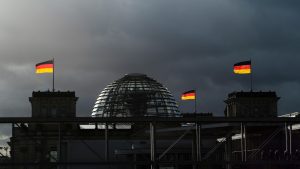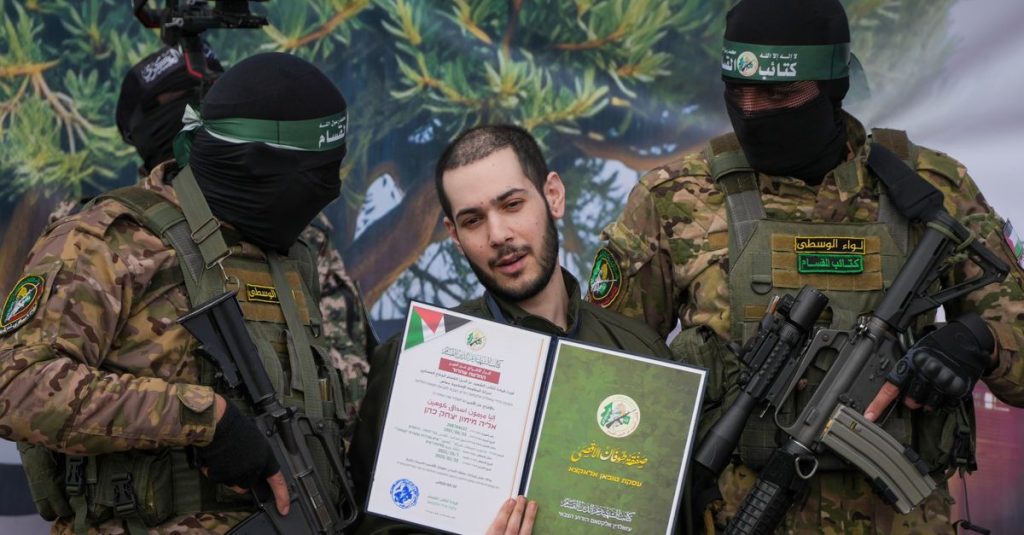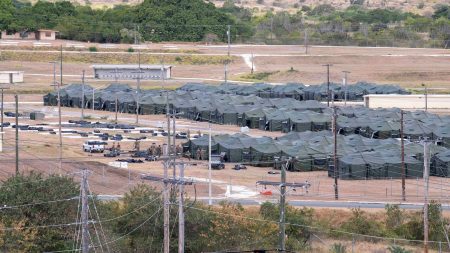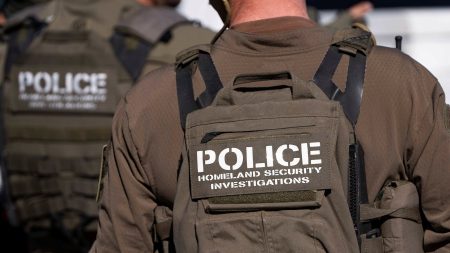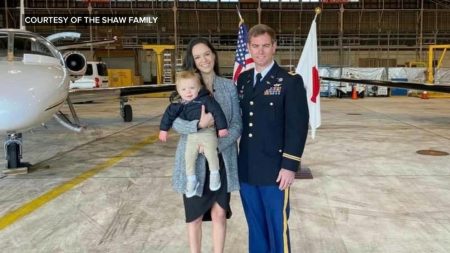Israel Delays Palestinian Prisoner Release Amid Tensions Over Hostage Handovers
The volatile situation between Israel and Hamas took a dramatic turn on Sunday as Israel delayed the release of hundreds of Palestinian prisoners. Initially planned to coincide with the release of six Israeli hostages on Saturday, the prisoner release was halted by Prime Minister Benjamin Netanyahu’s office. The delay was attributed to concerns over “humiliating ceremonies” during hostage handovers in Gaza, which Israel and the United Nations have condemned as cruel and exploitative for propaganda purposes. The decision has cast further uncertainty over the fragile ceasefire agreement, raising fears that the conflict could escalate once again.
The release of 620 Palestinian prisoners, intended to be the largest one-day release under the ceasefire’s first phase, was postponed after vehicles carrying prisoners turned back at the gates of Ofer prison. The move followed the release of six Israeli hostages, including three men abducted from the Nova music festival and another taken while visiting family in southern Israel during the Hamas-led attack on October 7, 2023. Two other hostages had been held for a decade after entering Gaza on their own. While the release of these hostages brought relief to their families, the staged ceremonies arranged by Hamas, featuring masked militants and forced statements from the captives, drew widespread criticism.
Emotional Reunions and Controversial Ceremonies Highlight Hostage Release
The release of the six Israeli hostages on Saturday was marked by deeply emotional reunions, but also by controversy. Five of the hostages were paraded in front of crowds in Gaza, with militants staging elaborate handovers that included forced statements and gestures. Omer Shem Tov, one of the freed hostages, was shown kissing Hamas fighters on the head and blowing kisses to the crowd, actions clearly performed under duress. His family, who had endured immense pain during his captivity, expressed joy at his return, with Shem Tov telling his parents, “You have no idea how much I dreamt of you.” However, the use of hostages for propaganda purposes has been widely condemned, with Israel and the UN labeling it a violation of human dignity.
The release also brought attention to the plight of hostages still held by Hamas. A video released by the group showed two captives, Evyatar David and Guy Gilboa Dallal, speaking under duress during the handover ceremony. Families of hostages still in captivity have called for urgent action to secure their release, criticizing Israel’s government for not doing enough. Protests in Tel Aviv highlighted the growing frustration among families, with one relative accusing Prime Minister Netanyahu of abandoning Israeli citizens.
Humanitarian Concerns and Political Tensions Rise Amid Ceasefire
The delay in releasing Palestinian prisoners has further strained the ceasefire agreement, with Hamas accusing Israel of violating the terms of the truce. The release of the six hostages was a key component of the first phase of the ceasefire, which has paused the deadliest fighting in the 16-month war. However, the next phase of negotiations is expected to be even more challenging. Hamas has demanded a full Israeli withdrawal from Gaza and a lasting ceasefire as conditions for releasing the remaining hostages, while Netanyahu has vowed to destroy Hamas’ military capabilities and secure the return of all captives. These competing demands make a resolution seem increasingly unlikely.
The conflict has taken a devastating toll on civilians in Gaza, with over 48,000 Palestinians killed and entire neighborhoods reduced to rubble. Israel’s military offensive has also resulted in significant losses, with hundreds of soldiers killed. The humanitarian crisis is compounded by the displacement of 90% of Gaza’s population at the height of the war. Despite the temporary pause in fighting, the likelihood of renewed violence remains high, with both sides dug in over their demands.
Families of Hostages and Prisoners Urge Action for Their Loved Ones
The families of both Israeli hostages and Palestinian prisoners have appealed for urgent action to secure the release of their loved ones. For the families of Israeli hostages, the past 16 months have been a ordeal filled with uncertainty and fear. Stories of hostages being held in isolation, subjected to mental and physical abuse, have emerged, highlighting the immense suffering endured by those in captivity. Niva Wenkert, the mother of freed hostage Omer Wenkert, expressed relief at his return but noted that the emotional scars of his imprisonment would take time to heal.
On the Palestinian side, the release of prisoners has been a rare glimmer of hope in a conflict that has seen immense suffering. Among those set to be freed are 151 prisoners serving life sentences for attacks against Israelis, as well as hundreds of others detained without charge during the war. The delay in their release has caused widespread disappointment and anger, with Palestinian officials accusing Israel of reneging on its commitments. The situation underscores the deep mistrust and animosity that continue to fuel the conflict.
Difficult Talks Await as Ceasefire Hangs in the Balance
The ceasefire agreement, which has brought a temporary halt to the deadliest fighting in the conflict, is now at risk of collapsing. Hamas has pledged to release four bodies next week, completing the first phase of the truce, but the second phase of talks is expected to be fraught with difficulty. Hamas is holding over 60 hostages, about half of whom are believed to be alive, and has refused to release them without significant concessions from Israel. Netanyahu, supported by the U.S. administration, has shown no willingness to meet Hamas’ demands, instead reaffirming his commitment to dismantling Hamas’ military capabilities.
The international community has called for both sides to exercise restraint and work towards a negotiated solution, but hopes for a lasting peace remain dim. The conflict has caused irreparable harm to both Israelis and Palestinians, leaving deep wounds that will take years to heal. For now, the focus remains on securing the release of all remaining hostages and preventing a return to full-scale war. The coming weeks will be critical in determining whether the ceasefire can be sustained or if the conflict will descend into further violence.


